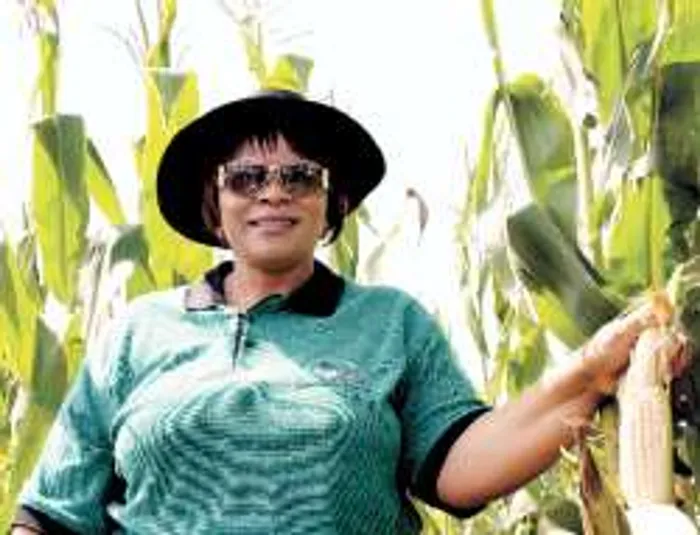
Poverty and the vision to empower her community led Sabina Khoza of Zuurbekom to turn her attention to a vacant stretch of scrubland fringing the outskirts of Soweto.
"I saw an opportunity to not only feed my family, but to feed my community too," said Khoza, who 15 years ago sunk her roots into the ground with money from her husband's pension.
"People were wary at first, but when they saw everything is possible with determination, I enjoyed their support," said the 52-year-old.
Strolling through her fields, flourishing beneath the healthy burden of maize and vegetables, Khoza's transformation of barren land into a fertile agricultural enterprise is apparent.
"I am a small-scale farmer with big dreams," she laughs.
Khoza leapt into her project in 1988 with 10 chickens, "a few farming text books" and a boldness to embrace innovation and risk.
She now produces 150 000 birds annually, has been the recipient of the Female Farmer of the Year Award and boasts with the presidency of the Gauteng Provincial Farmers' Union.
Encouraged by her success, Khoza ventured into maize and vegetables.
"I now grow maize and vegetables and run a training project for emergent farmers," she said.
Students get to perfect their skills on the eight-hectare farm during a six-week stint, in which Khoza drills them in all aspects of small-scale agriculture. "It is a way of empowering individuals and communities to take charge of their destiny and welfare," she said.
Former student Samuel Tshabalala, of KwaMhlanga north of Pretoria, says his stay at the training project taught him a valuable lesson.
"It's not just about learning to work the land... empowering yourself and working to uplift your community is what I really learnt," says the 43-year-old paraplegic.
Close to 100 trainees, most of them women, have graduated and subsequently launched their own enterprises.
Khoza explained that to increase her maize yield, she turned to genetically-modified (GM) maize. This decision increased her harvest by 27 percent.
"Yield capacity and disease resistance are important to small-scale farmers... the benefits are poverty reduction and increased food security," she said.
Her produce is sold within her local community and to retail outlets. But, according to Khoza, the enterprise is not immune to challenges."Money is always tight and marketing the produce can be difficult on the formal market."
Rainfall was also a worry, explained Khoza's farm manager, Michael Magodi,26, who graduated from the training centre two years ago.
"We need to plant produce that will sell. This means we need to stay abreast of market trends," he said. Plans are in the making to expand into livestock, but for now, says Khoza, it's time to consolidate and continue improving the lives of the community.
Admiring rows of ripening maize, it's apparent that Khoza's ownership of the land is not only flourishing in the red soil, but is bonded by her philosophy of caring for people by caring for the land.
